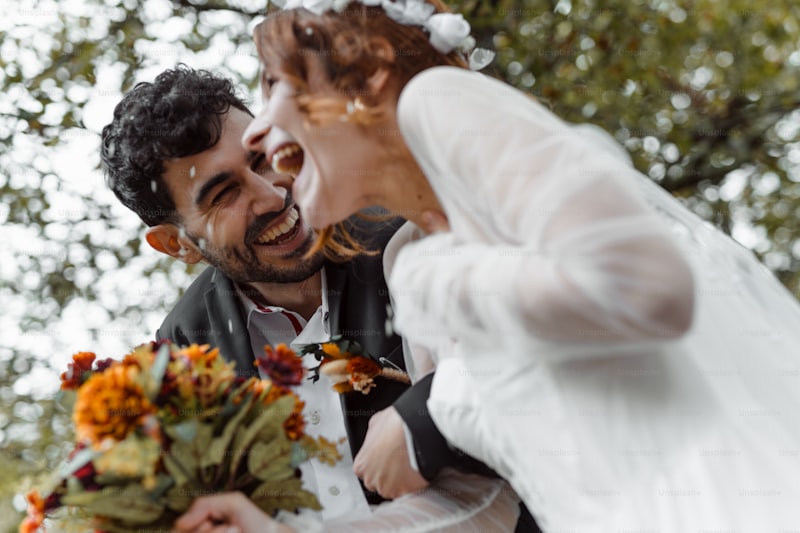Unveiling the Emotional Significance of Cultural Weddings
Cultural weddings are not just about two individuals uniting; they represent deep emotional traditions, shared values, and personal connections. The emotional significance of cultural weddings varies widely across different societies and traditions, intertwining feelings of love, joy, and community. In this article, we will explore the rich tapestry of emotions woven into cultural weddings, their significance in diverse cultures, and the way they connect people beyond the romantic aspect.
Understanding the Emotional Core of Cultural Weddings
The emotional significance of cultural weddings encompasses various aspects, including family involvement, community traditions, and the symbolism of rituals. These weddings are often steeped in customs that reflect the couple's heritage and values. Let’s break down the emotional elements associated with cultural weddings:
1. Celebration of Love and Commitment
Cultural weddings symbolize a deep emotional commitment between partners. They bring families together, allowing loved ones to witness the union and celebrate the couple’s love. From traditional vows to unique exchange ceremonies, love is at the heart of every ritual. This celebration often inspires profound emotions, from joyous happiness to heartfelt tears.
2. Family Bonds and Expectations
In many cultures, weddings are not merely an event for the couple— they hold significant emotional weight for families. Parents often feel a mix of pride and nostalgia as they see their children take a monumental step in life. The sense of belonging to a lineage and the responsibilities that come with it creates a profound emotional atmosphere. Family traditions and expectations can further intensify these feelings.
3. Cultural Identity and Heritage
Cultural weddings provide an opportunity to celebrate and showcase heritage. The traditions, attire, and rituals highlight a shared identity that evokes pride and strengthens ties with ancestry. For instance, Indian weddings are characterized by vibrant colors, intricate henna designs, and elaborate ceremonies. Each element is rich with symbolism, making it an emotionally charged experience for all involved.
| Emotional Elements of Cultural Weddings | Examples |
| Celebration of Love | Vows and promises made in front of family and friends |
| Family Bonds | Parents' roles and emotions during the ceremony |
| Cultural Identity | Traditional attire and rituals |
| Community Involvement | Guests play active roles in the wedding ceremonies |
The Impact of Cultural Wedding Rituals on Emotional Experience
Cultural weddings often involve a plethora of rituals that add layers of emotional depth. These rituals vary from culture to culture but typically include:
1. Pre-Wedding Ceremonies
Traditionally, the emotional journey begins long before the wedding day. Events like engagement ceremonies, bridal showers, or cultural pre-wedding rituals set the tone for the grand event. These gatherings create anticipation and excitement, involving family and friends in the couple's relationship journey.
2. Symbolic Acts During the Wedding
During the wedding, symbolic acts such as the lighting of candles, sharing of bread, or tying of threads not only hold cultural significance but also evoke strong emotions. Each act is carefully crafted to depict unity, partnership, and shared futures, enhancing the overall emotional experience of the day.
3. Post-Wedding Celebrations
The emotional journey doesn’t end with the wedding. Post-wedding events, such as receptions or family gatherings, allow guests to share in the couple’s happiness. These celebrations often involve storytelling, laughter, and the sharing of memories, making them an integral part of the emotional significance of cultural weddings.

The Role of Community in Cultural Weddings
Community involvement is another essential aspect of cultural weddings, further adding to their emotional significance. In many cultures, weddings transcend personal unions and become a communal celebration. Communities play a vital role in:
1. Support and Participation
Family and friends often contribute to wedding preparations, showcasing a sense of belonging and shared joy. The collective effort can evoke feelings of mutual respect, joy, and community solidarity.
2. Traditions That Bind
Community-led traditions reinforce emotional connections between people. In some cultures, members participate in specific roles during the ceremony, deepening their emotional ties to the couple and each other.
3. Shared Memories and Connections
After the wedding, the communal nature of these events allows for shared memories that strengthen bonds. People who attend these festivities often reminisce about experiences shared, cultivating a lasting emotional connection.
Considerations and Suggestions for Couples
As couples plan their cultural weddings, understanding the emotional significance involved can enhance their experience. Here are some considerations and suggestions:
- Embrace Traditions: Even if modern elements are included, incorporating traditional rituals can help honor cultural heritage and foster community ties.
- Involve Family: Family members can provide invaluable support not just in planning but also in enriching the ceremony's emotional landscape.
- Express Emotions: Allowing yourself and your partner to express emotions throughout the process creates a more meaningful wedding experience.
Conclusion
The emotional significance of cultural weddings is profound, impacting not just the couple but their families and communities. From the joyful celebrations filled with love to the deep-rooted traditions that honor heritage, these events serve as a bridge connecting the past, present, and future. Couples should cherish and embrace the emotional aspects of their cultural weddings, as they provide an opportunity to unite and celebrate not just love but also identity and community. This rich emotional tapestry is what makes cultural weddings truly special.
As you prepare for your cultural wedding, remember to celebrate the emotional journey, involve your loved ones, and cherish the traditions that make your union unique. The emotional significance attached to your wedding will resonate for years to come, not only in your lives but in the lives of all who witness your vows.